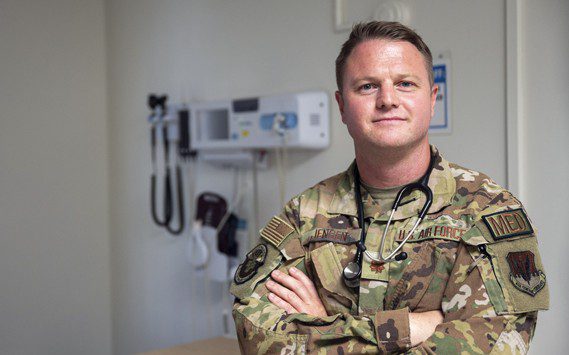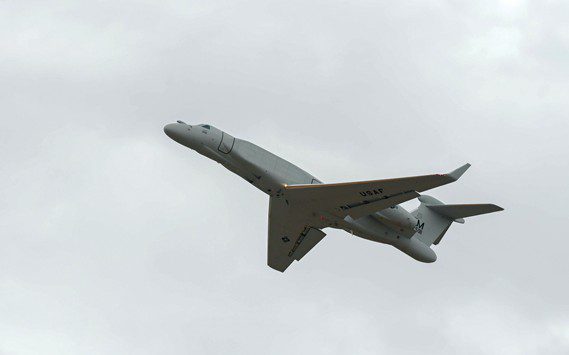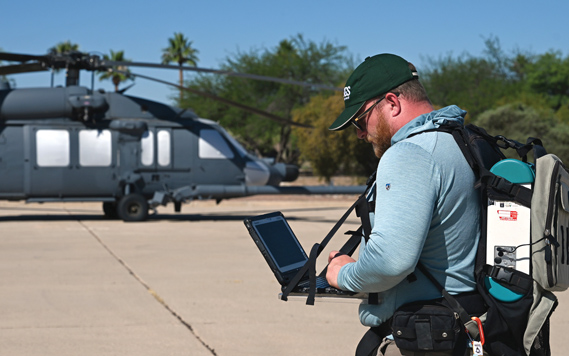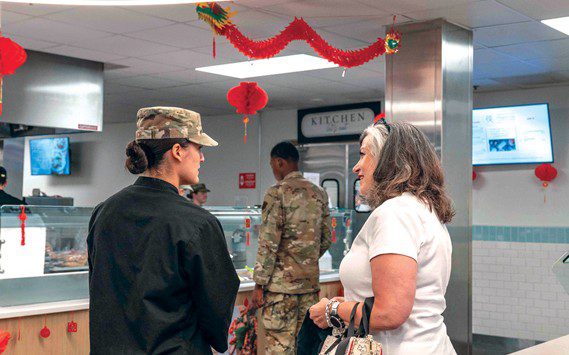WASHINGTON (AFNS) — As we begin Sexual Assault Awareness and Prevention Month, clear signs point to the progress we have made in combating sexual assault. We can cite encouraging numbers in the areas of prevalence, reporting and convictions; however, this serves as only the beginning of an enduring effort. This effort must continue without pause and we must not lose sight of it for a moment.
Regrettably, in the few short years since we energized our efforts Air Force-wide to prevent sexual assault, echoes about shameful activities and behaviors from our past sometimes still resonate. Most recently, a special interest group criticized the Air Force for an issue involving inappropriate material containing offensive language that was addressed in 2012. Disciplinary action was taken against those involved in the incident.
Any activity that goes against our core values and does not treat our people with dignity and respect is unacceptable and does not represent the culture we expect from all Airmen today and going forward. Every Airman is aware of what the Air Force’s expectations are about sexual assault awareness and preventing sexual assault altogether. Leaders and Airmen at every level must foster a climate of mutual respect, dignity and inclusion for all Airmen.
In an effort to ensure the appropriate climate and culture, the Air Force Chief of Staff implemented a Health and Welfare Inspection in 2012. The goal of this inspection was to create a professional environment for all Airmen. This inspection was part of a bigger effort to refocus our force and ensure commanders create and foster healthy and respectful work environments. In this area, we continue to see positive results and steady progress.
For instance, in less than a year’s time, the Air Force Office of Special Investigation has focused resources and efforts to reduce the time required to investigate instances of sexual assault from 179 days to a standard of 75 days today. AFOSI also developed advanced sexual assault investigations training and enhanced field evidence processing resources.
Additionally, more progress was made because of Department of Defense Instruction 5505.18. Organizations now initiate investigations on all rape, sexual assault, aggravated and abusive sexual contact allegations. These changes in law and policy resulted in an immediate increase in the number of sexual assault investigations conducted by AFOSI.
Over the past three years, the Air Force has had fewer sexual assault incidents and more victims reporting these crimes. In fact, approximately one in three victims reported crimes in fiscal year 2014 as compared to one in six in fiscal year 2012. Air Force surveys show Airmen are more comfortable coming forward and reporting incidents as an increased focus is placed on care and support for victims. We are going in the right direction, but we still have a lot of work to do.
It is important to note, the Air Force has made significant progress in both its sexual assault prevention and response efforts. Here are some examples since 2011:
-We have reinforced the commander’s role as central to preventing and responding to sexual assaults in their unit.
-We have required commanders to be evaluated on their unit’s climate assessment and that these results are included in the commander’s annual performance report.
-We realigned and restructured the SAPR program by standing up a cross-functional directorate reporting directly to the Vice Chief of Staff which is led by a major general. The directorate includes a 34-person cross-functional team of experts in the Pentagon responsible for policy, operational guidance, force-wide training, and program development; all designed to help us operate an Air Force free from sexual assault.
-The Air Force funded an additional 32 sexual assault response coordinators and 91 full-time victim advocates at installations across the service to strengthen our victim response capabilities.
-The Air Force has reviewed and significantly revised the sexual assault response coordinator’s course to cover more content, update old content, and institute adult learning principals so that our SARCs can be more effective in the field. To maintain professional standards, all SARCs and full time victim advocates are now required to be nationally certified.
-The Air Force has trained an additional 75 sexual assault nurse examiners at medical facilities across the Air Force to strengthen our victim response capabilities.
-The Air Force stood-up a Special Victims’ Counsel Program that provides an attorney to advocate on behalf of sexual assault victims and enables judge advocates to assert their clients’ rights both in and out of court. The special victims’ counsel is the first of its kind to provide Airmen and their family members who are victims of sexual assault with their own attorney. Additionally, improved AFOSI training along with establishing the Special Victims’ Counsel Program has led to a 90 percent increase in unrestricted reporting, allowing more thorough investigations.
-The Air Force established a special victims’ capability comprised of investigators, trial counsel, and victim witness assistance personnel and paralegals with specialized training in the unique dynamics of sexual assault cases. This team of professionals ensures the Air Force is appropriately holding alleged offenders accountable.
-In an effort to foster better synergy and provide better service to our Airmen reporting sexual assault and sexual harassment, in August of 2014, the Secretary of the Air Force directed new initiatives to harmonize our equal opportunity and sexual assault care for commanders and victims.
All of these actions represent significant strides we have made to enhance sexual assault awareness and now sexual assault prevention. Prevention is logically the next phase and only these efforts, when taken seriously at all levels in the Air Force, will further the cultural commitment we place on ensuring lasting change.
We share in common a profession of arms that holds us to a higher degree of commitment to institutional standards. This requires us to make the right choices for both ourselves and our fellow Airmen. Preventing sexual assault requires changing an atmosphere that enables such bad behaviors. This is simply because all Airmen deserve to serve our nation in an environment free from sexual harassment and sexual assault.











